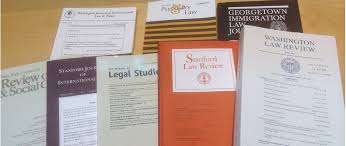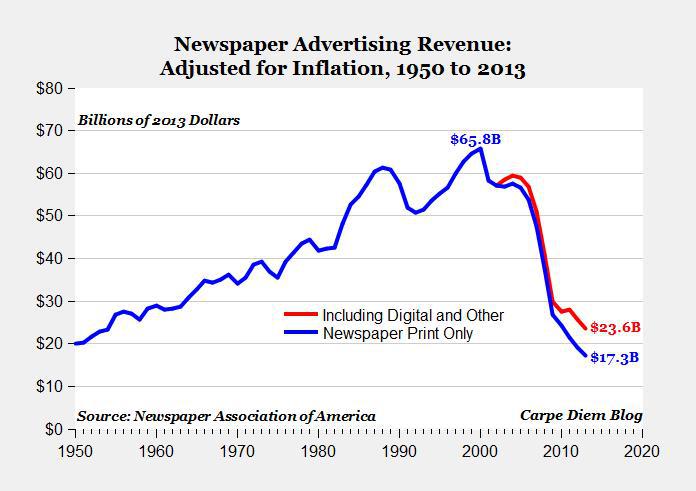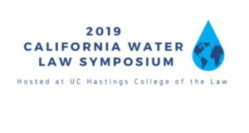Academia
Parking versus Housing at UC Berkeley
UC Berkeley faces same dilemma as much of rest of California in addressing the housing crisis
UC Berkeley is not immune to California’s housing crisis. Indeed, as the student newspaper noted, the campus “has housing for 22 percent of undergrads and 9 percent of graduate students – vastly lower than the UC average of 38.1 percent for undergraduates and 19.6 percent for graduate students.” Moreover, soaring housing costs have made it …
Continue reading “Parking versus Housing at UC Berkeley”
CONTINUE READINGEmmett Institute Faculty Publications Selected Among Top Five Articles in Environmental Law in 2018
Editors of the definitive annual compilation of the most significant scholarly articles in environmental law have selected articles by Emmett Institute faculty members Ann Carlson and Jim Salzman for their 2018 edition. The Land Use and Environmental Law Review selects the top five articles each year through a peer review process. Ann Carlson’s article in …
CONTINUE READINGThe Trajectory of Environmental Law Scholarship: 1975-2018
The volume of scholarship has swelled, as attention has turned to climate and renewable energy.
Over the time I’ve been following environmental law, there’s been a dramatic increase in the amount of scholarship in the field. Back in 2011, I did a search of the Westlaw “Journals and Law Reviews” database for (“environmental regulation” “air pollution” “water pollution” “endangered species”) with date restrictions. Although this search is only an approximation, I figured …
Continue reading “The Trajectory of Environmental Law Scholarship: 1975-2018”
CONTINUE READINGGoodbye, Cleveland!
Newspaper Collapse Threatens The Environment: Universities Need To Fill The Gap
In 1970, Cleveland’s Cuyahoga River famously caught fire. This past week, we have seen an even worse environmental disaster for the city: The Plain Dealer on Monday laid off 14 newsroom employees as part of a staff reduction first announced in December. The 14, most of them reporters and all members of Local 1 of …
Continue reading “Goodbye, Cleveland!”
CONTINUE READINGWhat Do We Know About Environmental Justice?
Not As Much As We Should
If you are not a regular reader of the Journal of Economic Perspectives, you should be. Most economists fetishize what my friend and colleague Steve Bainbridge refers to accurately as “recreational mathematics.” But often, these models add more heat than light, and in any event, function as a private language. Fortunately enough, JEP’s magician-editor Timothy …
Continue reading “What Do We Know About Environmental Justice?”
CONTINUE READINGA Time For Privacy: California Legislature Moves to Protect Academic Research
In an era defined in Washington by lies and the suppression of scientific research, California is positioning itself as a defender of facts and free inquiry. Assemblymember Laura Friedman (D, Los Angeles) this week introduced Assembly Bill 700, a bill sponsored by the Union of Concerned Scientists (UCS) to address the harm inflicted on public …
Continue reading “A Time For Privacy: California Legislature Moves to Protect Academic Research”
CONTINUE READINGCommemorating a Major Environmental Disaster–One With a Transformative Legacy
1969 Santa Barbara Oil Spill Sparked the Beginning of America’s Modern Environmental Era
This week marks the 50th anniversary of one of the most serious and consequential environmental disasters in American history–the Santa Barbara offshore oil spill of 1969. On January 28, 1969, an offshore oil rig (Platform A) owned and operated by the Union Oil Company and operating in federally-controlled waters in the Santa Barbara Channel off …
Continue reading “Commemorating a Major Environmental Disaster–One With a Transformative Legacy”
CONTINUE READINGClimate policy and horcruxes
What Harry Potter might have to teach us about making climate policy more resilient to political shifts
As the most recent report from the Intergovernmental Panel on Climate Change makes clear, the negative impacts of climate change are now upon us, and we have a very limited amount of time to decarbonize global economies in order to reduce the risk of catastrophic impacts from climate change, impacts that might begin as soon …
Continue reading “Climate policy and horcruxes”
CONTINUE READING2019 California Water Law Symposium Set for February 2nd in San Francisco
This Year’s Edition of the Award-Winning Event Focuses on Groundwater Management
The 15th Annual California Water Law Symposium will convene on Saturday, February 2, 2019. This year’s Symposium venue is the UC Hastings College of the Law in downtown San Francisco. The theme of next month’s Symposium is California groundwater, with a focus on implementation of the state’s landmark 2014 legislation, the Sustainable Groundwater Management Act (“SGMA”). The Water Law …
Continue reading “2019 California Water Law Symposium Set for February 2nd in San Francisco”
CONTINUE READINGWill There Be a Global Environmental Constitution?
The potential of a proposed Global Pact for the Environment remains uncertain
The 1990s were the heyday of international environmental lawmaking. The 1992 United Nations “Rio Conference” on Environment and Development catalyzed the UN Framework Convention on Climate Change (UNFCCC), Convention on Biological Diversity, and the UN Convention to Combat Desertification. The decade also witnessed the launch of the Rotterdam Convention on Prior Informed Consent as well as protocols …
Continue reading “Will There Be a Global Environmental Constitution?”
CONTINUE READING











